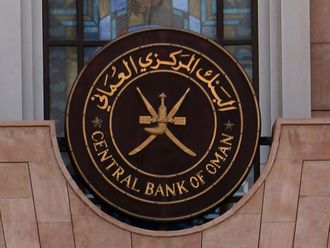London: A tightening web of sanctions is squeezing Iran's economy and placing a new burden on foreign firms wary of incurring hefty fines for violating the complex regulations.
The European Union added 180 people and entities to its Iran sanctions list on Thursday and laid out plans for a possible embargo of Iranian oil in response to mounting concerns over the oil producer's nuclear programme.
Sanctions have had an impact on Iran's economy, experts say, but they have not achieved their aim of stopping work that the West suspects is aimed at developing nuclear weapons. Tehran insists its nuclear activities are peaceful.
"The sanctions are certainly having an impact ... The latest US sanctions against the oil industry may further squeeze the room for manoeuvre available to Iranian oil customers, notably India and China," said Alan Fraser, Middle East analyst with security firm AKE.
"Due to sanctions on Iranian banks, Indian importers have had to pay through Turkish banks. The tighter US sanctions become, the more inclined Turkey will be to stop cooperating, making it increasingly hard for importers to pay for the oil."
Last week, the United States, Britain and Canada announced sweeping new sanctions on Iran's energy and financial sectors.
Britain's move led to a vote in the Iranian parliament to downgrade ties and angered Iranian protesters, who stormed its Tehran embassy, causing Britain to close the embassy and to expel all Iranian diplomats from Britain.
Iran, the second-largest oil producer in the Organisation of Petroleum Exporting Countries (Opec), exports 2.6 million barrels a day, and the state depends heavily on oil revenues.
Iran must contend with four sets of United Nations Security Council measures, EU curbs and bilateral measures imposed by a number of countries, including Switzerland. It faces a wide variety of asset freezes, travel bans, financial curbs and bans on investment in the oil and gas industries.
In a change from Tehran's usually defiant tone, Iran's trade minister, Mehdi Ghazanfari, acknowledged last week that sanctions were hitting the economy.
Christian Emery, a sanctions specialist at the London School of Economics, said the West knew it could not stop oil prices rising or enforce a complete embargo on Iranian oil, two weaknesses in its sanctions armoury. Iran's oil revenue increased from $73 billion to $96 billion in the last two years, he said.
"Obviously they can't stop Iran exporting oil, so they want to target Iran's banking system to prevent buyers from easily paying for it. They also want to inconvenience buyers to the extent that Iran feels obliged to sell it below market rate in order to retain their custom," Emery said. "Iran will be able to find banks in other countries that are willing to conduct transactions in non-dollar or euro currencies. They will also barter goods and services for oil — as they do regularly with China," he said.
Burden on business
Abiding by the ever-growing list of sanctions also imposes a burden on Western businesses that must keep track of complicated sanctions regulations issued by their governments.
Last week's move by Britain to order all its financial institutions to stop doing business with their Iranian counterparts and with the central bank of Iran dramatically changes the business environment.
"In the past, banks in the UK could make pragmatic commercial decisions about supporting business in Iran but they are now under the pressure of outright legal obligations and restrictions," said Jaime Burnell, a manager in PwC's risk and resilience practice.
oil prices could rise
By disrupting the supply of oil from Iran, Western countries risk driving up the global oil price, hurting Europe as it struggles with a debt crisis. Greece is wary of an EU embargo because financial woes have led it to buy more Iranian crude.
"It's actually starting to make things a lot worse [for Iran]. I think we are starting to look at a very broad boycott of Iranian oil," said Kenneth Katzman, a specialist in Middle Eastern affairs at the US Congressional Research Service. "In the case of Britain, I don't see how British importers would even pay for Iranian oil at this point," he said.
— Reuters












